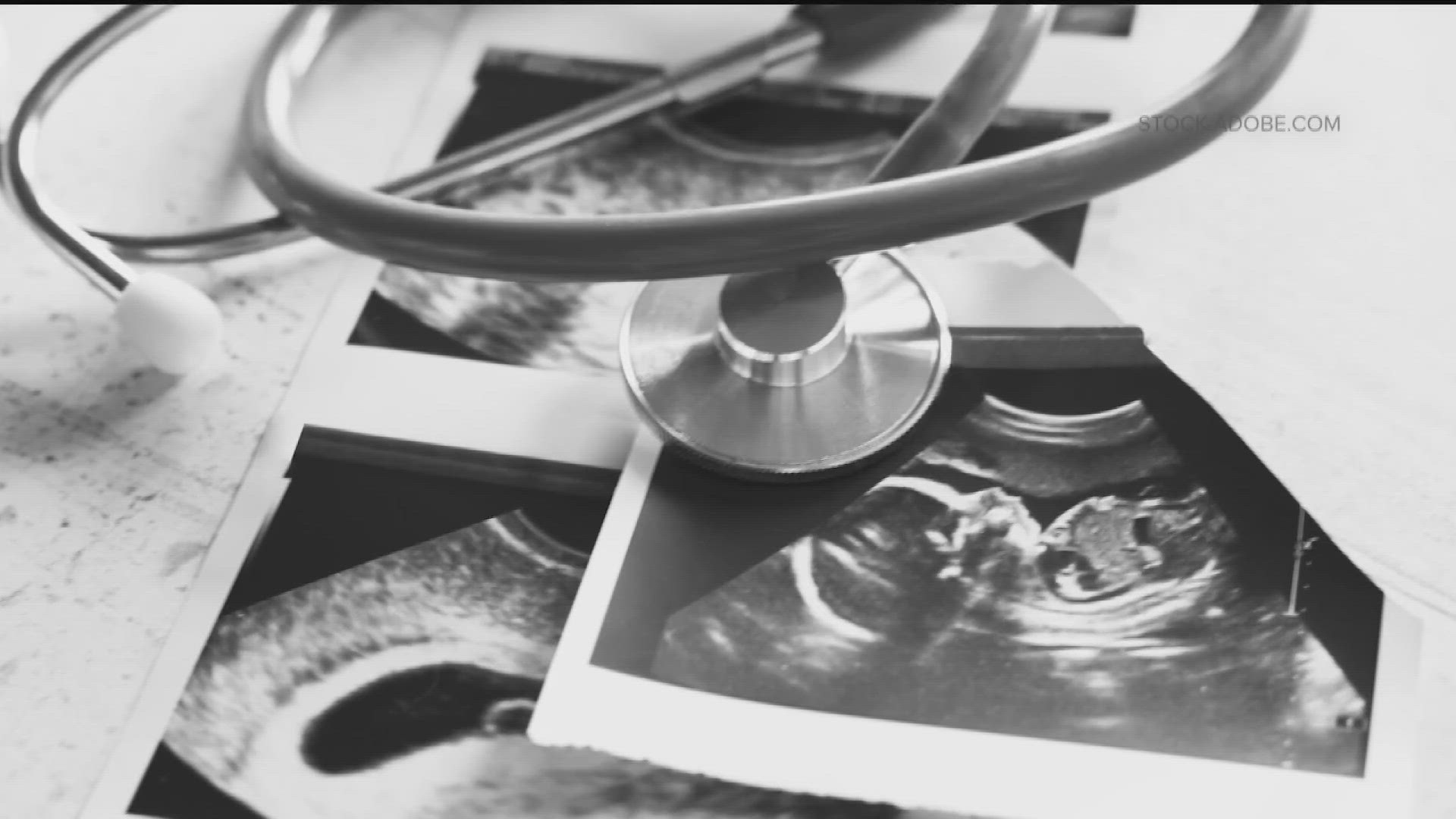FAYETTEVILLE, Ga. — A new study finds Georgia ranks among the worst states for maternal mortality, and it's only worsening.
Maternal deaths across the United States more than doubled over the past two decades. Black mothers died at the highest rates. American Indian and Native Alaskan mothers saw the biggest increases in deaths.
The study by the American Medical Association looked at maternal mortality, defined as death during pregnancy or up to a year after giving birth. Some common causes include heavy bleeding, infection, and heart disease.
Julianne Moore's oldest daughter is beautiful, but bringing her into the world was far from pretty.
“I think my blood pressure rose above 200, which was stroke level," Moore said.
Doctors induced her at 36 weeks into her pregnancy.
“She [the baby] came, and then because of the pre-eclampsia, I ended up bleeding out pretty bad," Moore said.
Moore almost lost her life that day.
“After I gave birth, I went in between consciousness and unconscious, and all I heard was, ‘Does she have a does she have a living will?’” Moore said. "They took my baby out of the room and left me there bleeding out until somebody said, 'No, she's alive!' I ended up having two blood transfusions after that."
Moore isn't alone. The maternal death rate for women of almost all races in Georgia has significantly increased based on statistics from 1999 through 2019, with an increase of 135% for white mothers, 105% for Hispanic mothers, 93% for Black mothers, and 83% for Asian and Pacific Islander mothers.
11Alive medical expert Dr. Sujatha Reddy believes living in healthcare deserts and systemic racism are some of the reasons behind the alarming number of deaths in Georgia.
“We know in the South our access to health care is one of the worst in the country," Reddy said.
Reddy said women can take certain steps to keep themselves healthy during pregnancy and after giving birth.
“Another thing that can help, I think, is if women, before they get pregnant, try to optimize their health, have a healthy lifestyle, try to get to a healthy weight, and make sure any chronic conditions you have are well-managed," Reddy said.
Reddy encourages women to reach out to their doctors before conceiving.
"Perhaps if you already have medical conditions, it's best to actually have a visit with either your OB-GYN or your primary care provider to say, 'Hey, I'm thinking about getting pregnant,'" Reddy said. "You might need different medications. They may encourage you to do different types of things or even change your medicine."
Moore was only 21 years old when she had her first daughter and felt she didn't get the care she needed on Medicaid.
"I very much felt like there was not a lot of educational services before, during, and after with the health care," Moore said.
Moore is now healthy and lives with her girls, husband and three dogs. She even opened up her hair salon in Buckhead.
“We're a very healthy family, and luckily there were no major complications on her end. That's what I'm thankful for, that I had a healthy baby," Moore said.
Moore said she gained almost 100 pounds during her first pregnancy and battled severe postpartum depression.
"I think that was due to the health condition that I was in. My blood work, my iron levels were super low for a good solid six months, 6 to 8 months, and because my daughter was rushed out of the room and I was kind of left to die," Moore said. "She was fed formula, and so there was really no latching or breastfeeding or anything. I think that that also played into my hormones with the postpartum depression. There was really no one that would help me figure out what was going on."
Fortunately, Moore said she got better care during her second pregnancy and had no major issues.

